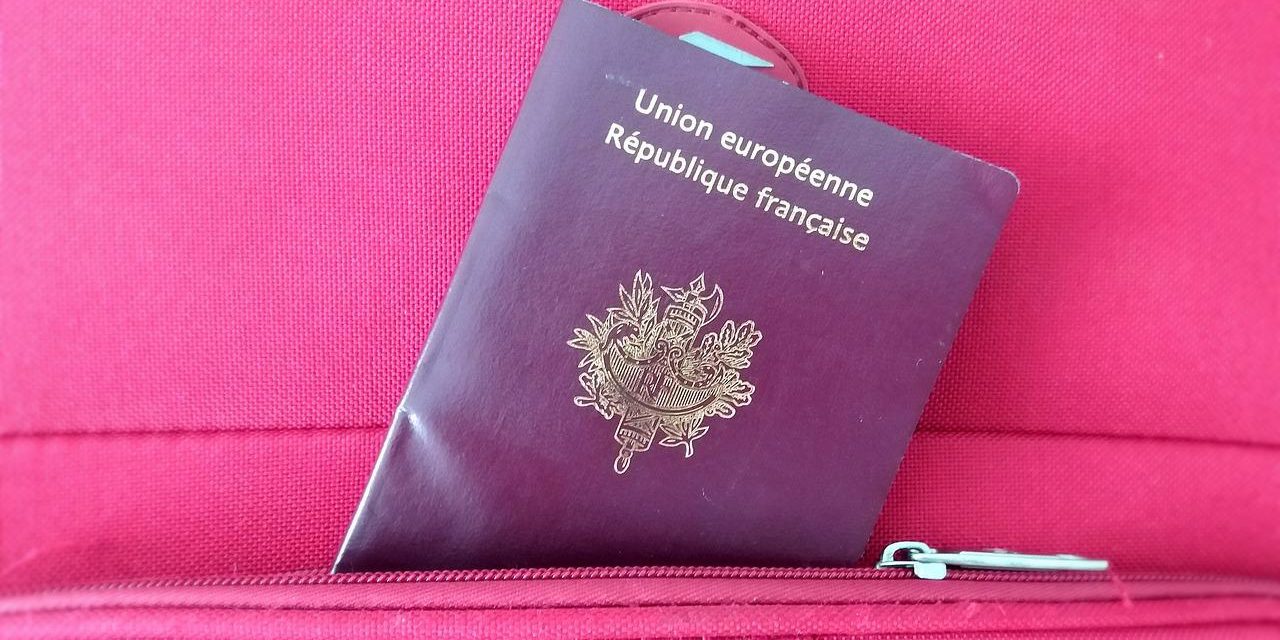Introduction
Getting a second passport with a criminal record can be challenging. This is because most residency and citizenship programs demand sight of a clean criminal background check. To that end, this article aims to shed light on how to obtain a second passport with a criminal record.
A second passport offers an array of benefits. This can include increased travel freedom, enhanced personal security, and expanded business opportunities – to name just a few. It serves as a gateway to unrestricted global mobility and can be a lifeline for those from politically unstable or economically challenged nations.
However, securing such freedom isn’t plain sailing for individuals bearing the weight of past misdemeanors. A criminal record introduces hurdles in almost every aspect of life, and obtaining a second citizenship is no exception. Barriers like stringent background checks, legal restrictions, and the stigma attached to criminal records can make this journey seem insurmountable.
The following sections delve deeper into these challenges and present potential solutions. By traversing through various options available for Americans with criminal records, understanding the role of legal opinion letters, and exploring countries with flexible citizenship requirements, we aim to provide comprehensive guidance on this complex subject.
Options for Americans to Get a Second Passport With a Criminal Record
When it comes to acquiring second citizenship or residency, Americans with criminal records face considerable hurdles. However, numerous avenues exist that can help individuals overcome these challenges and secure the rights and benefits of being a dual citizen.
Acquiring Second Citizenship or Residency
Several countries offer options for a second citizenship or residency to Americans, even those with a criminal record. The key is to approach the process strategically, understanding the specific requirements and potential roadblocks of each jurisdiction.
For instance, countries such as Portugal offer citizenship to those with criminal convictions, provided they’ve spent less than three years in prison. On the other hand, jurisdictions like Canada place a heavy emphasis on an individual’s criminal history when evaluating immigration applications.
1.1 Strategy: Overcoming Disqualifying Convictions
One method to circumvent these hurdles is through post-conviction relief. This legal mechanism allows individuals with criminal convictions to challenge their conviction or sentence after it has been finalized. Not all individuals are eligible for post-conviction relief; generally, it’s applicable to those who can demonstrate severe legal errors during their original trial or sentencing.
The case of John Doe -an anonymized name for privacy reasons- serves as an example. He was convicted of a felony in his youth but successfully used post-conviction relief to reduce it to a misdemeanor, thereby opening up opportunities for him to apply for second citizenship in countries that would otherwise disqualify him due to his felony conviction.
1.2 Strategy: Expungements and Pardons
Another route available is through expungements and pardons. An expungement essentially erases a conviction from one’s record, while a pardon forgives the crime committed but does not erase it.
Obtaining an expungement or pardon depends on various factors, including the nature of the crime committed, the time passed since conviction, and whether any subsequent crimes have been committed. It’s important to note that not all convictions can be expunged; serious felonies often remain on record.
Consider Robert Smith, who had a DUI conviction from over ten years ago. Through diligent legal action and proof of rehabilitation, he was able to get his conviction expunged from his record, which played a crucial role in his successful application for Irish residency.
It’s worth noting that some countries consider expunged convictions when assessing applications for second citizenship or residency. Countries like Australia and New Zealand will consider expunged convictions under certain circumstances, making it essential for applicants to understand the specifics of each country’s immigration laws.
While securing second citizenship or residency as an American with a criminal record might seem daunting, these strategies suggest there are viable pathways available. The upcoming sections will delve into additional tools and tactics, such as legal opinion letters and more flexible citizenship requirements in certain countries.
Role of Legal Opinion Letters
Legal opinion letters play a pivotal role in the quest for second citizenship, especially for individuals carrying the burden of a criminal record. Legal professionals prepare these documents and present an assessment of an individual’s criminal history to immigration authorities, often casting it in a more favorable light.
In the labyrinthine world of immigration law, these legal opinion letters serve as guides, helping authorities navigate through the complexities of an applicant’s past. They provide context and shed light on the nature and severity of past offenses, personal growth since then, and current standing within society.
While a criminal record may paint a black-and-white picture, legal opinion letters add shades of grey. For instance, they can highlight any rehabilitation efforts undertaken by the offender or emphasize how a one-time mistake from decades ago should not define the current individual.
To illustrate this point, consider John (name changed), a businessman with a DUI conviction from 15 years ago. John has since transformed his life completely – he completed his court-ordered courses, maintained a clean record, and even started an organization that educates young drivers about the dangers of drunk driving. A legal opinion letter in John’s case would emphasize these significant positive changes – thus presenting him as a worthy candidate for second citizenship despite his past mistakes.
In essence, legal opinion letters can significantly influence how immigration officials perceive one’s criminal record. These documents present an opportunity to rewrite one’s narrative and increase the likelihood of successfully securing second citizenship – making them an invaluable tool in this process.
Countries with Flexible Citizenship Requirements
When considering second passport possibilities, it is crucial to investigate specific countries where evidence of previous convictions may not be a mandatory requirement for citizenship. A receiving country may have different criteria when evaluating applicants with criminal records, providing an opportunity for individuals to start afresh.
No Evidence of Previous Convictions Required?
Countries such as Dominica, St. Kitts, and Nevis, and Grenada are known for their economic citizenship programs. These nations offer a pathway to citizenship through investment. They will want a comprehensive criminal records check. However, representations can be made to them, and it may be possible to get a second passport with a criminal record.
Dominica: Through the Economic Citizenship Program, individuals can obtain Dominican citizenship by making a non-refundable donation to the government fund or investing in real estate.
St. Kitts and Nevis: The Citizenship-by-Investment Program allows individuals to secure citizenship either by donating to the Sustainable Growth Fund or investing in pre-approved real estate.
Grenada: The Citizenship-by-Investment Program offers two options – a donation to the National Transformation Fund or an investment in the approved real estate projects.
These countries evaluate applicants based on their potential impact on the nation’s economy and may overlook their past mistakes with the right representations.
Countries in Latin America may be the best option for those looking for a second passport with a criminal conviction. There can be more flexibility in countries such as Guatemala and Ecuador than in larger European countries.
Criteria for Applicants with Criminal Records
Receiving countries that do not demand evidence of previous convictions have their unique set of requirements. They often rely on personal interviews, financial background checks, and character references instead of focusing solely on criminal history. These aspects help them assess an individual’s intent and potential contribution to society.
For instance, Antigua and Barbuda’s Citizenship-by-Investment Program pays close attention to an applicant’s reputation. They scrutinize media reports and other sources about prospective citizens to determine their character. St. Lucia, another Caribbean nation offering economic citizenship, requires applicants to provide detailed financial statements alongside personal character references.
Positive Equities: A Gateway to Citizenship
The concept of positive equities plays a vital role in obtaining citizenship in several countries. This term refers to factors that demonstrate an individual’s ability to contribute positively to society despite having a criminal record.
Examples of positive equities may include:
- Significant business achievements
- Philanthropic activities
- Demonstrated rehabilitation
- Lack of reoffending
Countries such as Portugal consider such positive equities while reviewing applications from individuals with criminal pasts. Prospective citizens could showcase their business acumen or philanthropic contributions as evidence of their potential benefit to Portugal, thereby strengthening their application.
While hurdles undoubtedly exist while seeking a second passport with a criminal record in 2023, understanding the flexible citizenship requirements offered by certain nations can open new doors.
Conclusion
In the quest for a second passport, individuals with criminal records face unique challenges. This article unpacked these complexities, presenting viable options and strategies to overcome them.
We delved into options available for Americans with criminal records, from the benefits and limitations of different citizenship or residency programs to the role of expungements and pardons in mitigating the impact of these records. We also underscored the importance of legal opinion letters in painting a positive picture of an applicant’s past misdemeanors during the residency or naturalization process.
Exploration of countries with lenient citizenship requirements added an interesting dimension to this discussion. Some nations do not seek evidence of previous convictions, instead focusing on positive equities – factors that speak to an individual’s ability to contribute to their society positively.
Navigating through these procedures may present a daunting task. However, understanding all possible avenues is crucial. A second passport can open up a world of opportunities, even for those who have stumbled in their past.
To make your journey smoother, consider seeking professional advice tailored to your specific circumstances. Remember, every journey begins with a single step. In this case, that step could be as simple as reaching out to Liberty Mundo for initial guidance. We specialize in challenging cases and can often find surprising solutions. Find out how to work with us here.
Your Questions on How to Get a Second Passport With a Criminal Record
What is the importance of having a second passport for individuals with criminal records?
Having a second passport can provide individuals with criminal records with more freedom, opportunities, and security. It can open up new avenues for travel, business, and residency. It also serves as a backup plan in case of any political or economic instability in one’s home country.
What are some options available for Americans with criminal records to acquire second citizenship or residency?
Americans with criminal records can explore various options such as post-conviction relief and expungements to acquire second citizenship or residency. These strategies can help mitigate the impact of their criminal records, making it possible for them to meet the requirements of the receiving country.
What is the role of legal opinion letters in the process of obtaining second citizenship or residency?
Legal opinion letters provide a positive assessment of an individual’s criminal record during the residency or naturalization application process. They can highlight factors that might mitigate the impact of any convictions, increasing an applicant’s chances of success.
Are there countries that do not require evidence of previous convictions for citizenship?
Yes, there are countries that do not ask for evidence of previous convictions when evaluating applicants for citizenship. However, they may use other criteria such as positive equities to evaluate applicants with criminal records.










